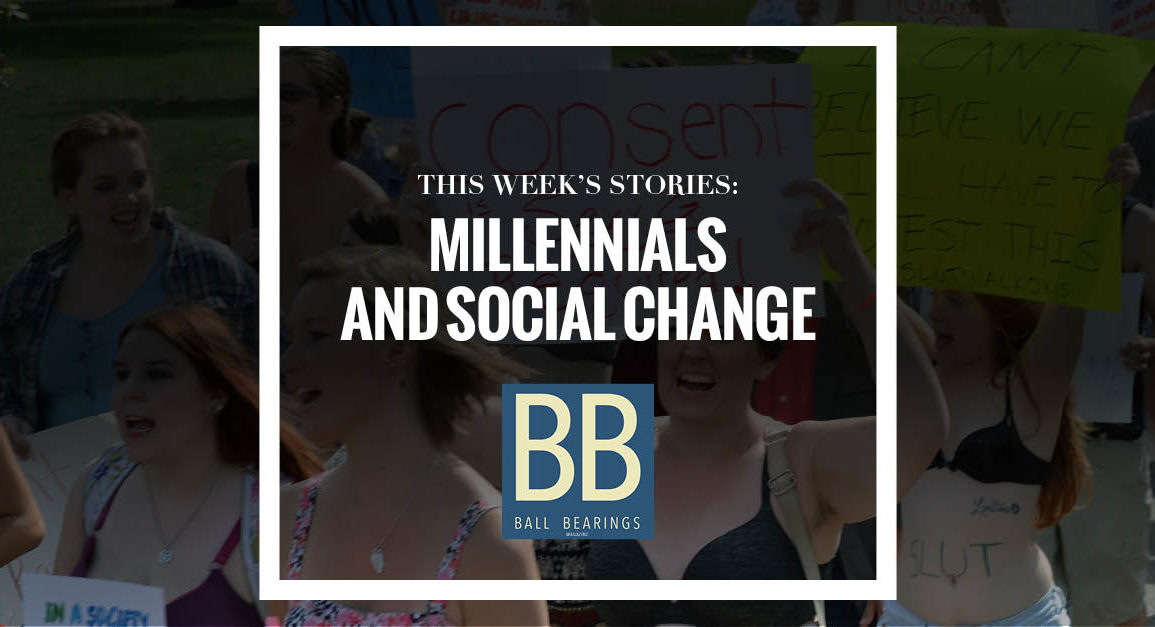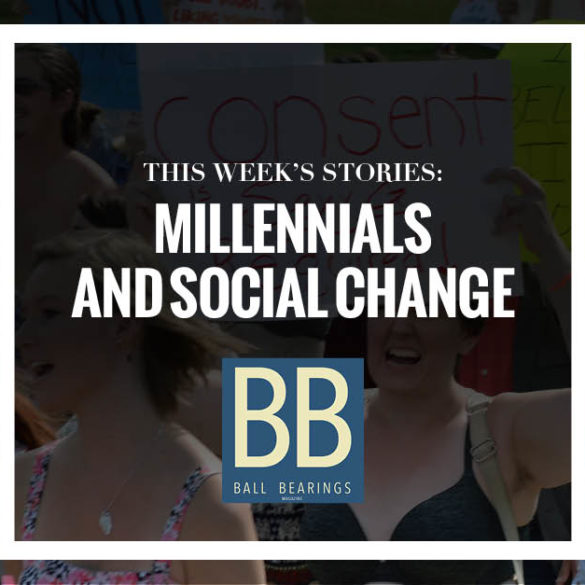They are taking to the sidewalks and protesting causes they care about. They are collecting signatures, stripping down, and making statements. They are Millennials. Activists. Young people getting involved in politics and issues they care about: equal rights, healthcare, mental illness. The way Millennials see politics, activism, and social issues has shifted from past generations.
Eighty percent of the Millennial population in America intends to vote in the general election this fall, amounting to a little more than 60 million people, according to a survey conducted by Niche in 2014.
To find out what issues are most important to Millennials and the 2016 election, we sat down with a panel of individuals to discuss issues in the upcoming election, and the role of politics for young people.
Groups like “Muncie for Bernie Sanders,” won’t settle for no action. One group of students led the way in collecting signatures and raising awareness about their favorite presidential nominee. Several other groups like this are raising awareness about issues like transgender rights and health care by creating action around campus.
One movement and ideology many Millennials identify with is feminism. Seventy-eight percent of college women in the United States identify as feminists. A report by Stanford University says feminism on college campuses is growing, and female and male students alike are helping to fight the misconceptions associated with it.
Although there are many important issues to this generation, mental health issues have been brought to light recently more than at any time before. One student opened up about her own battle with an undiagnosed eating disorder, addressing one of several problems and breaking stigmas to create social change.
Read these stories:
“Galvanizing the Campus,” by Jeremy Ervin
Searching for signatures in the cold, stripping down and being written on outside the library, and marching around campus. These student groups won’t just sit around–they are taking action.
“The Changing Nature of Feminism,” by Carli Scalf
Millennial feminists are working toward a more equal society for all, not just between men and women.
“Issues in the Upcoming Election,” a Q&A by Abby Kirk
Ball Bearings sits down with four individuals to discuss issues, candidates, and considerations in the 2016 election.
“The Voice Behind the Vote,” by Keagan Beresford
The Millennial generation has shown increasing interest in voting, and this generation may have the biggest effect on the country’s political future.
“The Problem with the Problem,” a multimedia story by Alex Kincaid
Arianna Hartloff has battled symptoms of eating disorders since middle school but has never been formally diagnosed or treated. One person among the five percent of the U.S. population that has symptoms of undiagnosed bulimia, she felt her problem was nothing to worry about–until it got out of hand.




